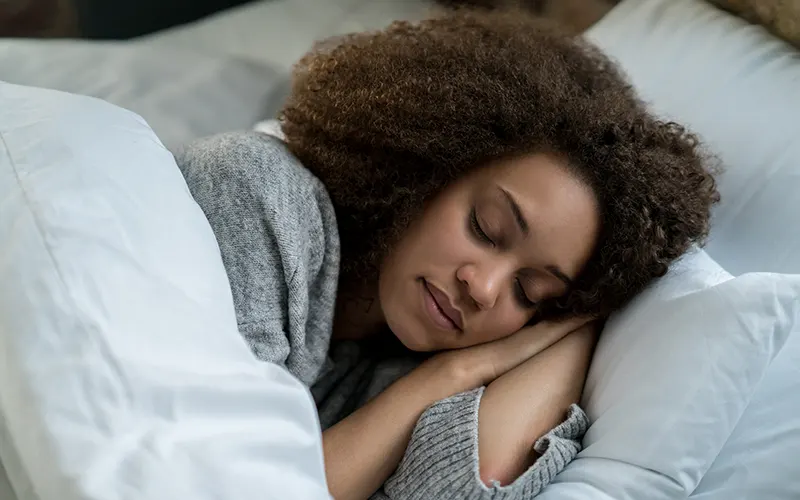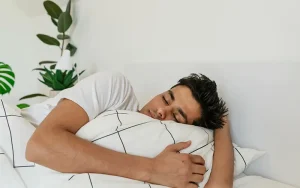Getting enough sleep is really important for staying healthy and feeling good. It’s crucial for people of all ages, but there are differences in what affects sleep and how it works for kids and adults. If you don’t get enough good-quality sleep, it can lead to various health problems. People are now realizing how vital sleep is for our well-being, and there’s a growing focus on making sure everyone gets the sleep they need as a public health goal.
Even though thinking about sleep as part of our daily activities is a recent idea, people have known for a long time that sleep, physical activity, and sitting around are connected. For instance, how much we sleep, how active we are, and how much time we spend sitting have been discussed as ways to understand the links between sleep and body fat.
When we don’t get enough sleep, we might feel tired during the day and not want to move around much. Also, spending a lot of time doing sedentary things in the evening, like watching TV, could make it harder to fall asleep and make our sleep shorter.
New ways of studying sleep as part of our daily routine suggest that how we spend our time is crucial for body fat and other health outcomes. However, just thinking about sleep duration as part of our daily routine has some issues. It assumes that we can easily trade time we’re awake for more or less sleep, it doesn’t consider other important aspects of sleep like its quality and timing, and it overlooks the idea that how we spend our time, not just in terms of physical activity and sitting, can affect different aspects of sleep.
Whether you’re an early riser or a night owl, everyone values a restful night’s sleep. However, even with the best intentions, getting good sleep can be a challenge, and it might even lead to serious health problems.
A recent study from the University of South Australia reveals that the way you organize your day, with exercise as a central factor, is linked to the quality of your sleep.
Published in Sleep Health, the study investigated various aspects of time management and sleep in 1,168 children (average age 12) and 1,360 adults (mostly mothers, average age 44). The findings showed that individuals, both children and adults, who engaged in more moderate to vigorous physical activity experienced better sleep quality, less fatigue, and fewer sleep problems.
According to Australian guidelines, most adults need around eight hours of sleep each night, while children and teenagers should aim for 8–11 hours.
Dr. Lisa Matricciani, a researcher at UniSA, emphasizes the importance of understanding factors that impact sleep quality for overall health and well-being.
“Even with our understanding of sleep, numerous individuals continue to face challenges in attaining a restful night,” notes Dr. Matricciani.
“While most people consider bedtime adjustments like avoiding screens, moderating food intake, and abstaining from alcohol when thinking about sleep quality, our research expands beyond these considerations to examine the various activities throughout the day.”
“Our research discovered that our daytime activities are connected to various aspects of our sleep, including sleep quality, sleep efficiency (the time spent in bed actually asleep), overall sleep duration, daytime tiredness levels, and bedtime choices.
“At times, our chosen activities may directly interfere with sleep, like when kids play video games late into the night. However, in other instances, it’s about how we spend our waking hours.
“In our study, we conducted different simulations to explore how expanding or limiting certain time-related factors influenced different aspects of sleep.
“We observed that increasing moderate to vigorous physical activity in both children and adults resulted in reduced tiredness, improved sleep quality, and less troubled sleep.
“Interestingly, simply allocating more time for sleep was linked to more restless sleep.
“Everyone desires a good night’s sleep. If it boils down to being more active during the day, it could be a reasonably attainable goal for most of us.”
Read More : The way you sleep has a bigger impact than you might realize
References:
https://medicalxpress.com/news/2024-03-healthy-day-boost-bedtime-blues.html
https://www.sciencedirect.com/science/article/pii/S2352721823002504?via%3Dihub









